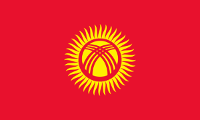Hungarian language, indefinite vs. definite conjugation
Hungarian, like English, has indefinite and definite articles that indicate whether you are speaking about a specific object or a non specific object. For instance,
| Indefinite | a car | egy autó |
| Definite | the car | az autó |
Now here is a bit of fun. Hungarian also indicates by verb endings whether the object of the verb is definite or indefinite. Observe:
| Indefinite | I see a car | Látok egy autó |
| Definite | I see the car | Látom az autó |
Isn't that curious? The definiteness of the direct object is double coded. This distinction of definite/indefinite for the direct object is coded in all the verb forms. For instance, here is the complete conjugation of the verb ‘see’ in the present tense:
| Indefinite | Definite | |||
| Singular | Plural | Singular | Plural | |
| 1st | látok | látunk | látom | látjuk |
| 1st to 2nd | látlak | |||
| 2nd | látsz | láttok | látod | látjátok |
| 3rd | lát | látnak | látja | látják |
Lots of languages double code things, but this is the first time I've encountered it for definiteness in the verb. It's quite common to double code negativity in languages. For instance,
| Spanish | No sé nada. | Not I know nothing. | I don't know anything. |
| Russian | Ничего не знаю. | Nothing not I know. | I don't know anything. |
Hungarian language, day 3
I'm actually making good progress on my Hungarian. So far there is exactly one word that for some reason is causing me problems, although today I may finally have it down. It is the word for goodbye which is:
Yes, I know you are desperate to surpass my linguistic awesomeness, so you can hear and practice the pronunciation here.
Hungarian language, numbers 20-90
| 10 | tíz |
| 20 | húsz |
| 30 | harminc |
| 40 | negyven |
| 50 | ötven |
| 60 | hatvan |
| 70 | hetven |
| 80 | nyolcvan |
| 90 | kilencven |
| 100 | száz |
Hungarian language, verb ‘would like’
This is the conditional form of the verb ‘love.’
| Indefinite | Definite | |||
| Singular | Plural | Singular | Plural | |
| 1st | szeretnék | szeretnénk | szeretném | szeretnénk |
| 1>2 | szeretnélek | |||
| 2nd | szeretnél | szeretnétek | szeretnéd | szeretnétek |
| 3rd | szeretne | szeretnének | szeretné | szeretnék |
Hungarian language, verb ‘know’
This is the present tense conjugation of the verb ‘know.’
| Indefinite | Definite | |||
| Singular | Plural | Singular | Plural | |
| 1st | tudok | tudunk | tudom | tudjuk |
| 1>2 | tudlak | |||
| 2nd | tudsz | tudtok | tudod | tudjátok |
| 3rd | tud | tudnak | tudja | tudják |
In the definite it is used to discuss knowing a particular fact. (Knowing a person involves the verb ismer, not tud.) In the indefinite it is used to discuss knowing how to do something.
| I know where it is. | Tudom, hol van. |
| I know how to drive. | Tudok vezetni. |
(The source for those two sentences is wiktionary.)

